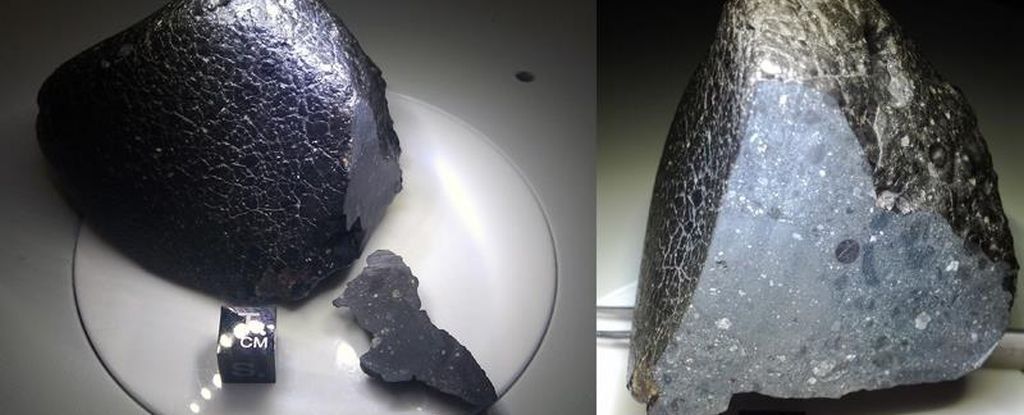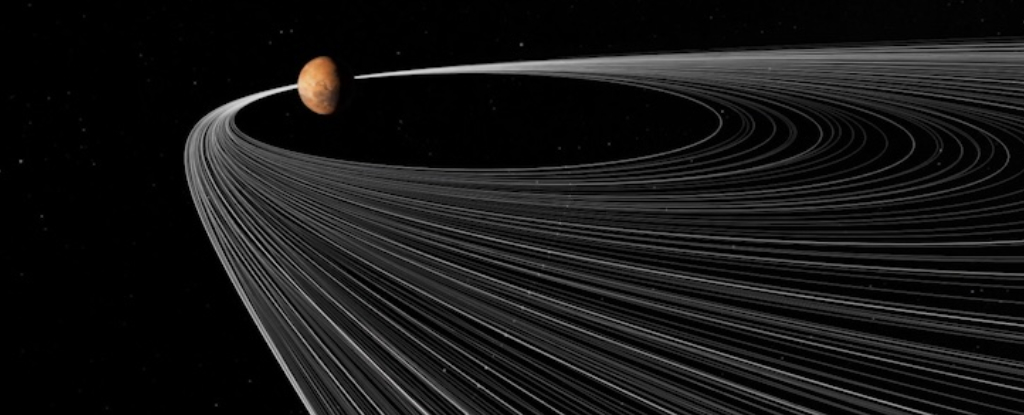ARTICLE AD
A great disturbance in the Force hit last night when Lucasfilm confirmed that it would not continue its latest live-action Star Wars series, The Acolyte. The end of the series isn’t just about the untimely end of one particular show, however: the abrupt decision paints an unpleasant picture for Star Wars‘ future, at a time where the franchise continues to feel the grip of an uncertainty it’s been feeling arguably since the release of The Rise of Skywalker in 2019. So what does the Acolyte news mean for Star Wars‘ future?
The Twilight of the High Republic
The High Republic transmedia initiative has been one of Lucasfilm’s biggest projects in recent years, and although the book and comic series was always announced from the get-go as having a specific, three-phase structure, it’s hard not to feel like The Acolyte—the era’s first big leap into live-action continuity—facing an untimely end puts a bit of a dampener on the project as it continues its third, seemingly final, phase of books.
Lucasfilm has put a lot into The High Republic beyond just The Acolyte of course, including other shows, like the 3DCG kids series Young Jedi Adventures. But for as almost as long as the initiative has been around, we similarly knew that it was building toward this live action show, the visual establishment of this entire period of Star Wars and its ideas in the grander continuity. There’s still plenty to come from the era in the form of books and comics, but having it all build up to a now-abandoned show feels like a blow to both the audience the High Republic series has curated for itself with Star Wars fandom, and the creatives who led the charge in establishing that world.
That said, it’s already clear that The Acolyte‘s story will find a future in the written word, if not on a screen. At San Diego Comic-Con last month, Lucasfilm’s publishing panel was almost entirely dedicated to new comics and novels set to flesh out the time period and characters of The Acolyte, and it wouldn’t be all that surprising to see future stories that wrap up some of the show’s lingering ideas exist in that form at some point.
Make Mine Mando…
 © Lucasfilm
© Lucasfilm Right now, it feels like unless your project is being directly overseen in some manner by Jon Favreau and Lucasfilm’s chief creative officer Dave Filoni, it’s probably on the back burner for a bit. The so-called “Mandoverse”—stories told in the post-Return of the Jedi period of Star Wars all loosely spinning out of threads laid in The Mandalorian, from The Book of Boba Fett, to Ahsoka, to multiple upcoming movies—is practically the only thing that feels certain in Lucasfilm’s slate at the moment.
Although announced at the same time at Star Wars Celebration last year, there’s been very little motion on the studio’s plans for either the post-Rise of Skywalker New Jedi Order movie with Sharmeen Obaid-Chinoy and Daisy Ridley, or James Mangold’s “Dawn of the Jedi” project. And while we likewise haven’t heard anything all that definitive about the third movie announced there—Filoni’s originally intended theatrical debut for a New Republic vs. Imperial Remnant film—we have heard much about the director’s plans to set the stage for that film’s eventual arrival, including next year’s The Mandalorian and Grogu (the first Star Wars film since 2019) and a second season of Ahsoka (confirmed a few months after the climax of the first season).
The other films have remained on nebulously shifting release dates since their announcements—or, in the case of the Rey film, occasionally already been the target of bad-faith culture war grifting—but Mandalorian and Grogu is the only theatrical project to give us tangible evidence of its continued existence right now, in the form of footage showcased to audiences at D23 earlier this month.
… But Will Anything Else Get Made?
The only definitive series we know of right now are ones already produced, the Lego Star Wars special Rebuild the Galaxy, out next month; Skeleton Crew, coming this December (itself loosely affiliated with the “Mandoverse,” being executive produced by Favreau and Filoni and being set in a roughly similar time frame as The Mandalorian); and the second season of Andor, due some time in 2025. But after that? Both the TV and theatrical sides of Star Wars remain pretty nebulous with The Acolyte‘s discontinuation.
That in and of itself continues a running pattern Lucasfilm has found itself in since the release of The Rise of Skywalker five years ago. A swath of Star Wars projects have been announced in that period, only to find themselves outright scrapped, quietly dropped, or left in a nebulous holding pattern or rework that leads to them never being made. This includes the Lando show (now a movie that, again, has not been really mentioned since its reworking), Rogue Squadron, and a sea of projects from the likes of Shawn Levy, Taika Waititi, Kevin Feige, and more. Lucasfilm has confirmed and then abandoned perhaps more projects in the last half-decade than it has actually ended up releasing. Hell, the studio has never formally stated it’s no longer making a trilogy of movies with Rian Johnson, announced just before the release of The Last Jedi seemingly fundamentally altered the cultural conversation around Star Wars forever (more on that in a moment)!
All this has created is a pattern of uncertainty around almost any Star Wars announcement, no matter if it’s made through trade reporting, Disney shareholder conferences, or glitzy fandom conventions. Why should Star Wars fans get excited for announcements that almost inevitably will fade into the ether? Why invest in a series that can be immediately dumped after its first season? Especially if it’s not directly connected to the immediate impetus of the franchise’s current fixation on The Mandalorian?
For the Love of God, Protect Those Skeleton Crew Kids
 © Lucasfilm
© Lucasfilm For all the inconsistency the studio has had with its release schedule, there’s one area in particular Lucasfilm has been largely consistent on for the worse: its inability to speak out and defend its creative talent from bad faith attacks and harassment. Ever since The Last Jedi created a moment in the “culture war,” any Star Wars project that even vaguely makes aspersions to questioning the series or fronts diverse talent has faced withering waves of bad-faith assaults about the so-called “woke agenda.”
While the studio has made at least some headway in combating these attacks—most notably when it publicly rallied around Obi-Wan Kenobi actress Moses Ingram—Lucasfilm by and large has had a history of leaving talent unsupported in the wake of online harassment, with stars like Kelly Marie Tran and John Boyega openly discussing their struggles with Star Wars fandom and the abuse they received, or more recently with Lucasfilm’s silence after the New Jedi Order movie’s planned director, Sharmeen Obaid-Chinoy, was the target of a misinformation campaign by right-wing influencers earlier this year for an unrelated comment about her filmmaking she made in 2015.
Ahead of The Acolyte‘s release, Lucasfilm’s president Kathleen Kennedy made a big to-do about supporting the series should it face similar campaigns, considering its diverse lead cast and its status as the rare Star Wars series showrun by a woman. “Operating within these giant franchises now, with social media and the level of expectation—it’s terrifying,” Kennedy said in a May New York Times profile. “I think Leslye [Headland, The Acolyte’s showrunner] has struggled a little bit with it. I think a lot of the women who step into Star Wars struggle with this a bit more. Because of the fan base being so male dominated, they sometimes get attacked in ways that can be quite personal.” And yet, Lucasfilm again remained silent when the series and its creatives, especially Headland and lead star Amandla Stenberg, were subjected to multiple waves of targeted harassment over its purported “breaking” of Star Wars continuity for including prequel trilogy Jedi Ki-Adi-Mundi in a brief appearance, or how the show’s approach to the Force did not align with certain preconceived notions. The fact that the show’s abrupt end has sparked a wave of celebrations by certain online circles (including Elon Musk, of all people) over how the series was an example of “go woke, go broke” speaks to how thoroughly unprepared Lucasfilm remains when it comes to addressing Star Wars‘ volatile presence in the ongoing culture war.
It makes for an especially fraught moment then that the next live-action series, Skeleton Crew, is a show that stars a group of young children. Already doing something a little non-traditional for the franchise—an adventure series with child protagonists in the vein of films like The Goonies—if Skeleton Crew does anything even remotely perceived as different from the franchise, attacks on its stars will be as inevitable as they were 25 years ago when Phantom Menace child actor Jake Lloyd was lambasted for his portrayal of Anakin Skywalker. Regardless of how Skeleton Crew is received, Lucasfilm cannot leave its talent unsupported as it has so often in the past.
Always in Motion, the Future Is
Making movies and TV is hard, especially in the moments of tumult studios find themselves currently in—even a studio backed by the fully armed and operational firepower of Disney, as Lucasfilm is. Plans will shift and change all the time, series won’t perform well and come to an end, things will be announced, scrapped, or pushed back constantly. Star Wars is certainly no exception to this rule, just as it hasn’t been in the years since The Rise of Skywalker. No doubt as Lucasfilm returns to the convention circuit with next year’s Star Wars Celebration in Japan, we’ll get to hear a little more about some of that future, both immediate and further on. And again, there’s similarly little doubt that much of that future will remain in flux.
But the abrupt decision over The Acolyte puts the franchise at a grim crossroads going forward: a future where Star Wars is even timidly experimental in the face of cultural grifting and finding a place for itself beyond the stories of the mainline movies, or a future where it places all of its focus on mining the one particular vein that’s worked since the end of the Skywalker Saga that prioritizes the familiar above much of anything else.
Want more io9 news? Check out when to expect the latest Marvel, Star Wars, and Star Trek releases, what’s next for the DC Universe on film and TV, and everything you need to know about the future of Doctor Who.

 3 months ago
30
3 months ago
30 

